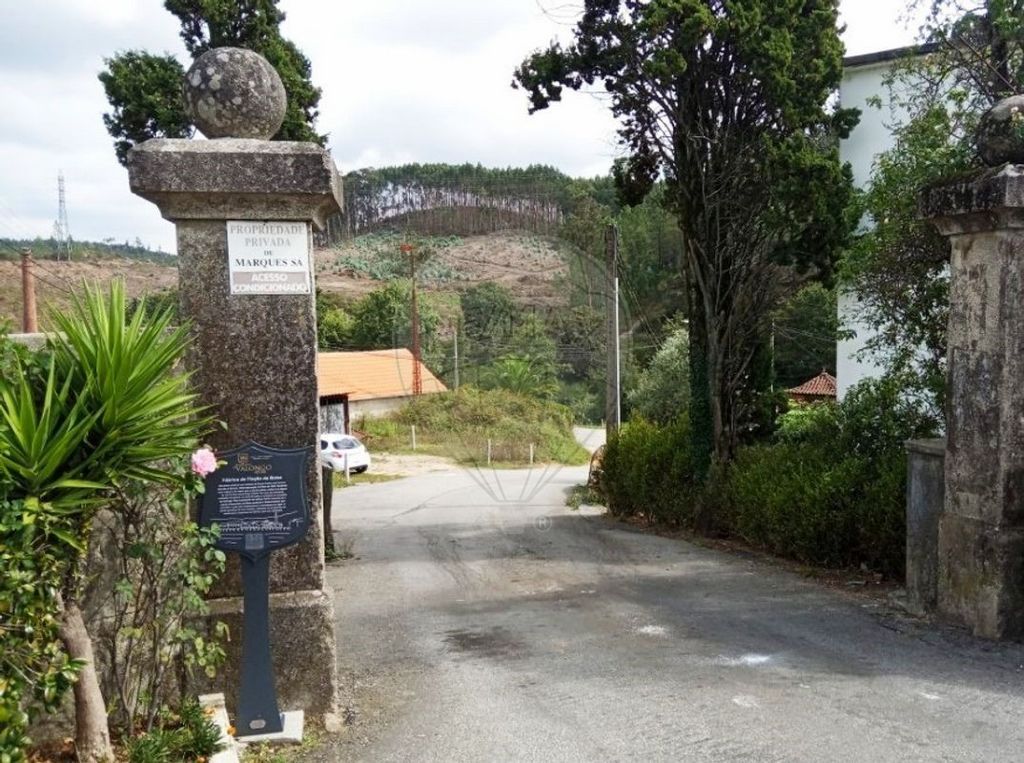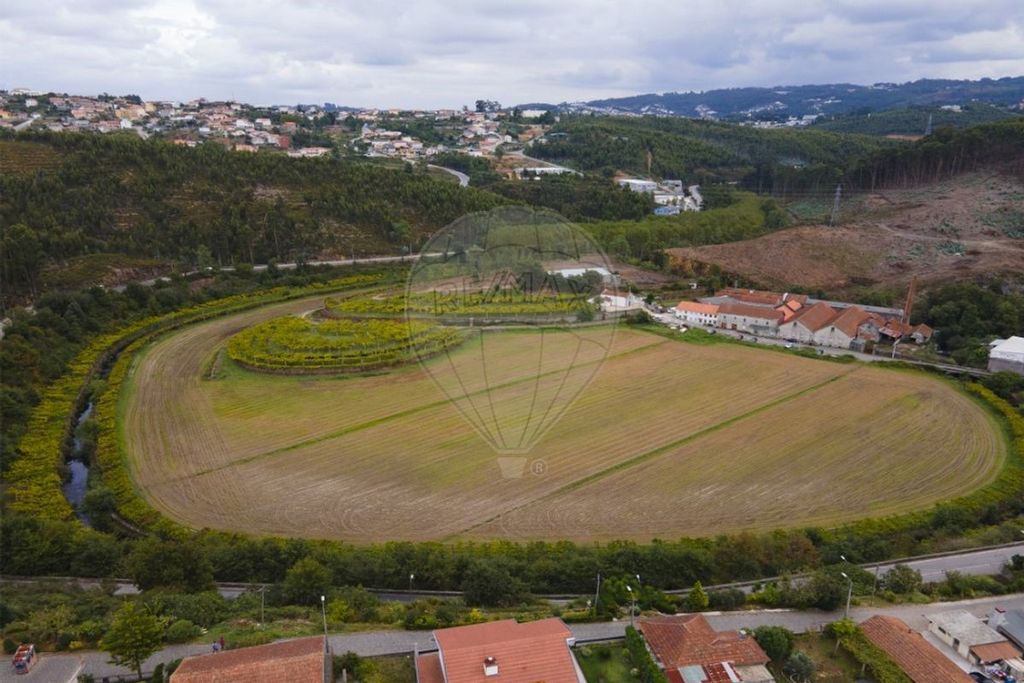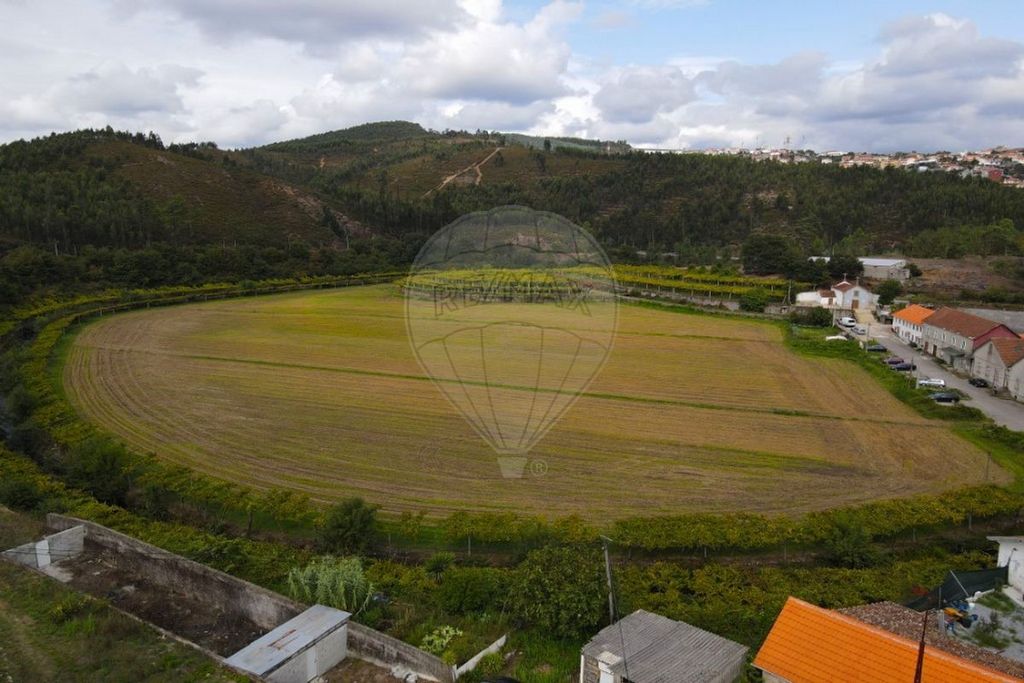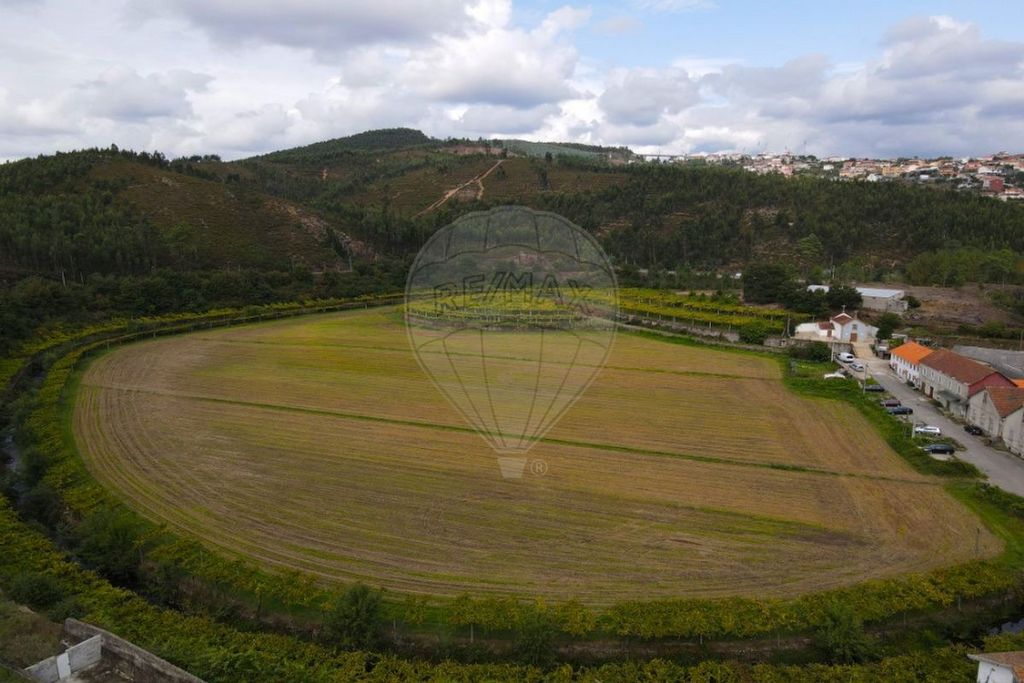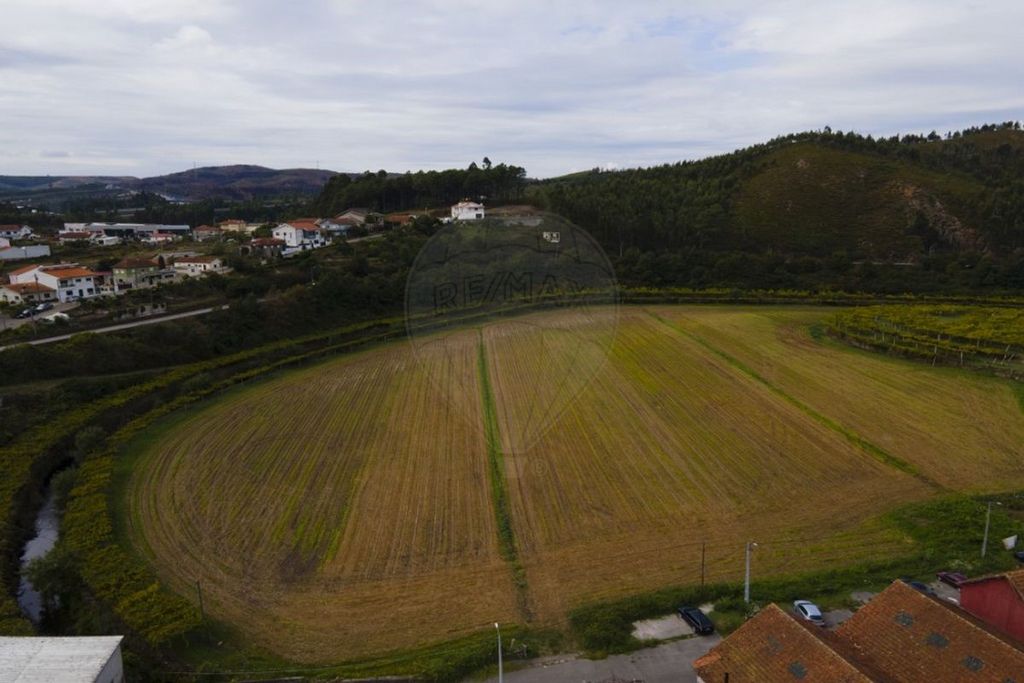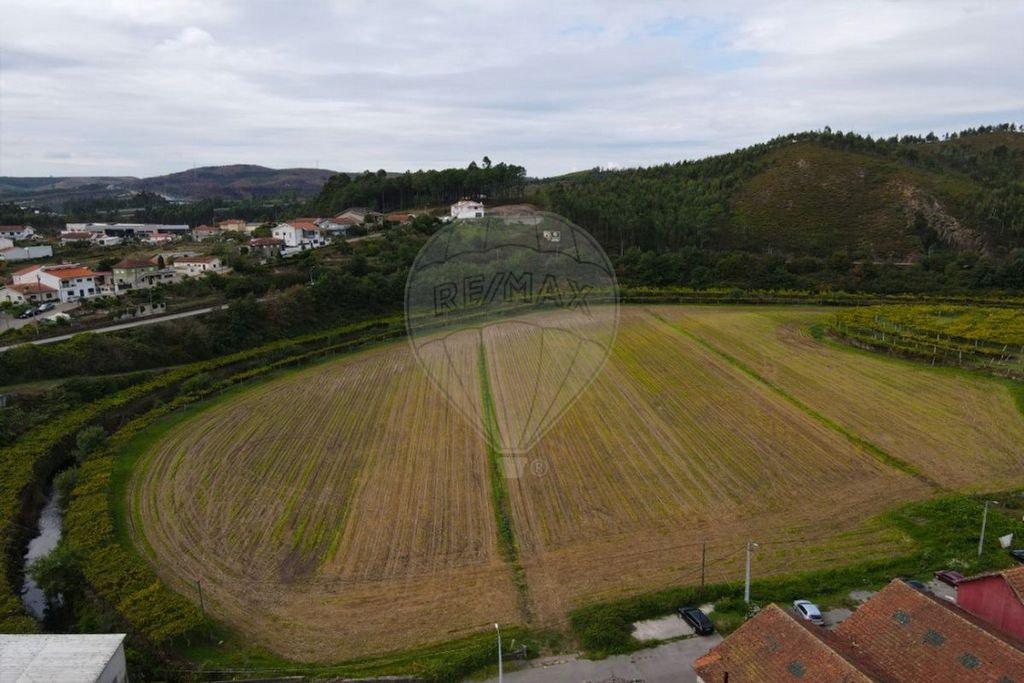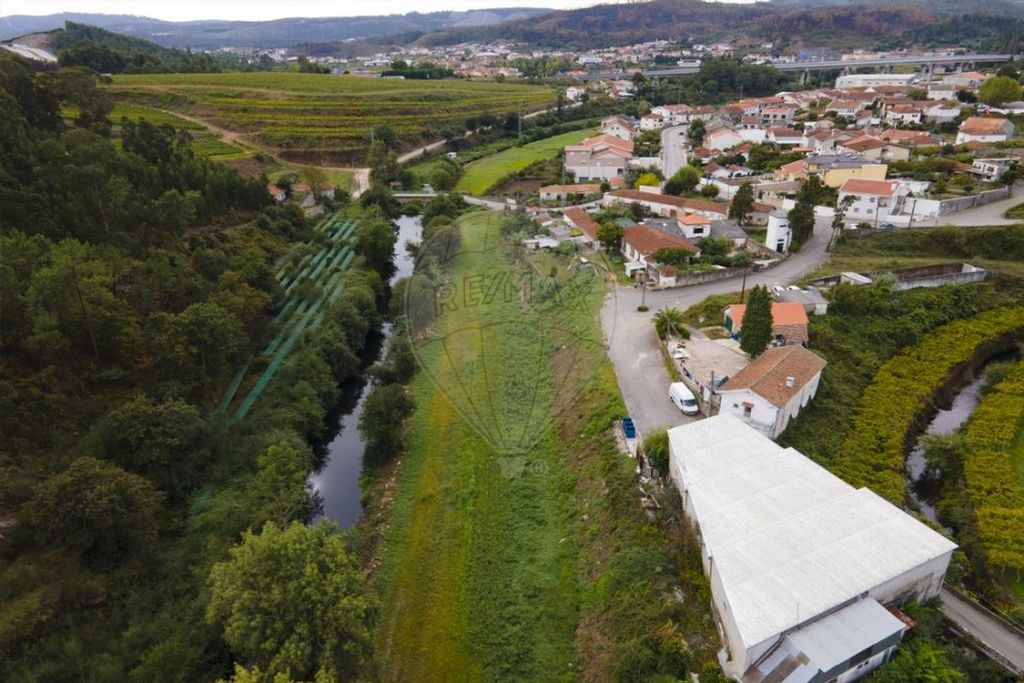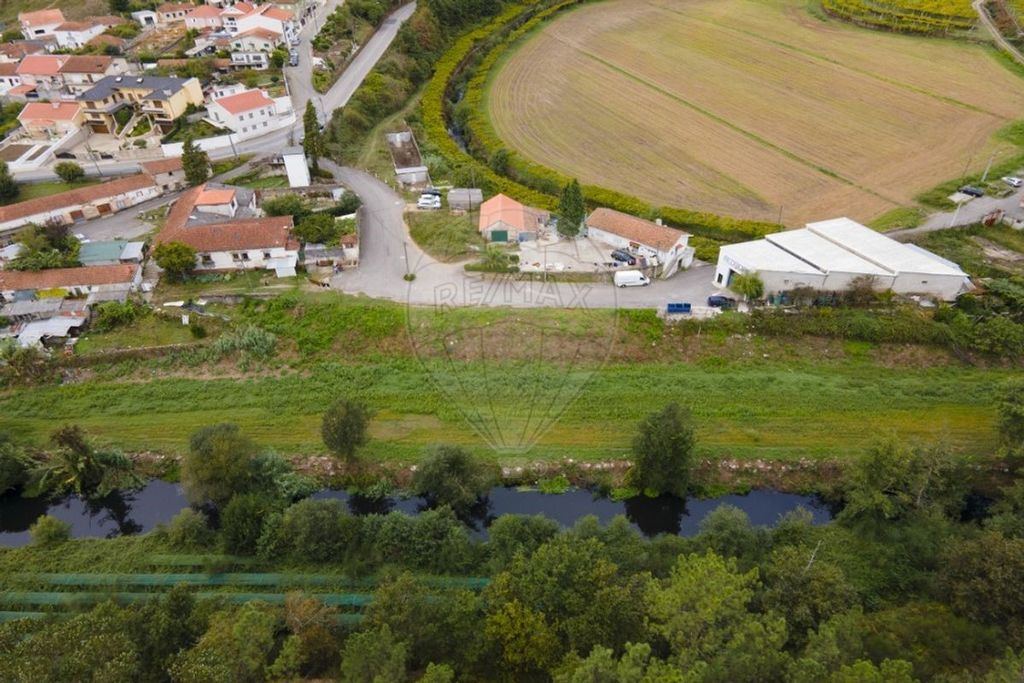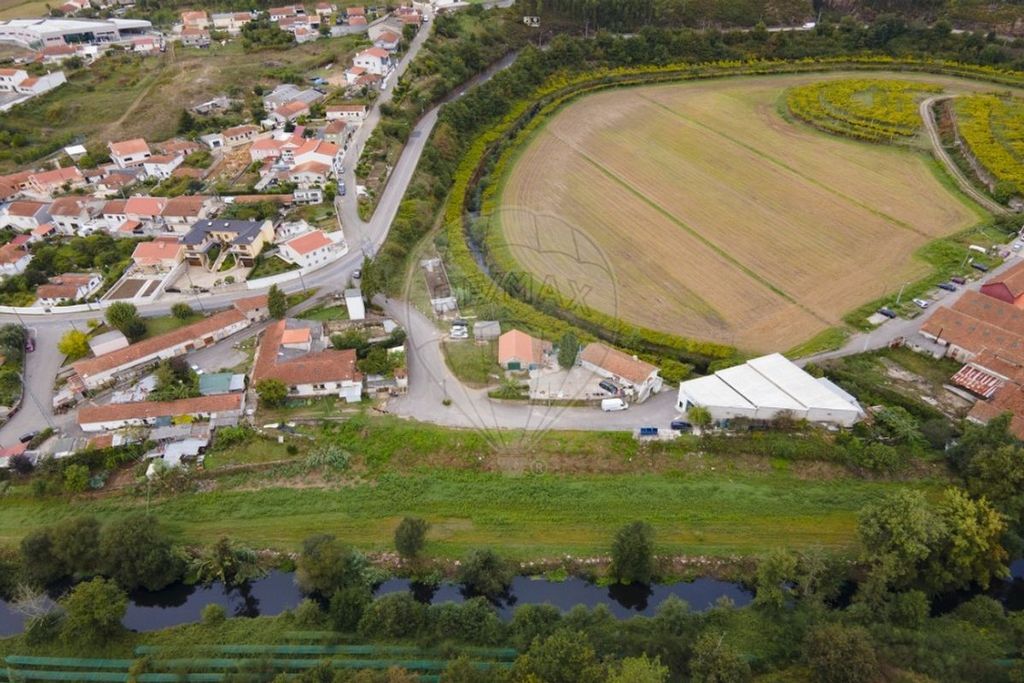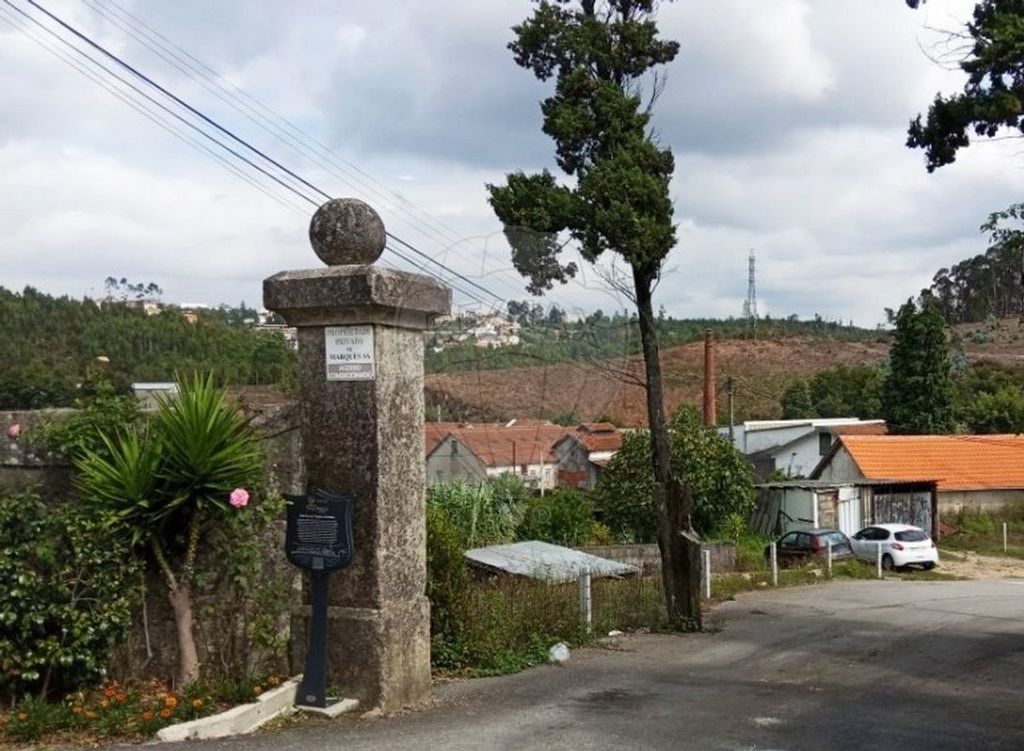FOTOGRAFIILE SE ÎNCARCĂ...
Casă & Casă pentru o singură familie (De vânzare)
110.000 m²
Referință:
EDEN-T84230593
/ 84230593
Farm of historical value with mostly agricultural land, with a part destined to pasture, ramada and pine forest. The total area of the property is 110,202,000m2. all of it surrounded by a river. Located in a microclimate area, great for farming. Very close to urban centers such as Valongo, Maia, Matosinhos, Porto among others. Close to the airport, Porto Leixões and the A 41. The History of Quinta da Balsa: The former Balsa Spinning Factory opened its operation at the beginning of the second half of the nineteenth century. It is the first industrial spinning factory in the municipality of Valongo and one of the first in the north of the country to use advanced technology for the time. It is an important testimony of industrial archaeology that used water from the Ferreira River, partially diverted for this purpose. In the summer season he needed a steam engine for his work. In the vicinity of the factory building is the nineteenth-century chapel of Balsa, dedicated to Saint Anthony, which allowed the worship of the workers and residents of the place. The granite bridge, existing in the surroundings, with a lowered arch was made at the expense of the factory, for its use. Downstream of this there is the Balsa bridge, of patrimonial importance and next to which there is a levada that serves a mill and an irrigation also called Balsa. In the mid-1950s, the Balsa Spinning Factory, which had been founded in 1860 and was dedicated to spinning and twisting cotton, closed its doors. It was an innovative factory because it used the waters of the Ferreira River as the driving force of its production. For the particular use of this industry, there was also a thermoelectric power plant that was already operating in 1928 producing energy until 1943. Excellent deal for farming, in addition to being able to acquire a property of great historical value within the district of Porto. If you need to sell or buy a property, we are entirely at your disposal to help you with the process. We are available to help you make dreams come true, whether you buy or sell your property. RE/MAX ID: ...
Vezi mai mult
Vezi mai puțin
Quinta de valor Histórico com terreno maioritariamente agrícola, com uma parte destinada a pastagem, ramada e pinhal. A área total da propriedade 110 202.000m2. toda ela rodeada por rio. Implantada numa zona de microclima, ótima para exploração agrícola. Muito próxima de centros urbanos tais como Valongo, Maia, Matosinhos, Porto entre outros. Perto do aeroporto, Porto leixões e A 41. A História da quinta da Balsa: A antiga Fábrica de Fiação da Balsa inaugurou a sua laboração em inícios da segunda metade do século XIX. Trata-se da primeira fábrica de fiação industrial do concelho de Valongo e uma das primeiras do norte do país a utilizar tecnologia avançada para a época. Trata-se de um importante testemunho da arqueologia industrial que utilizava a água do rio Ferreira, parcialmente desviado para o efeito. Na época estival necessitava de uma máquina a vapor para a sua laboração. Nas imediações do edifício fabril encontra-se a capela oitocentista da Balsa dedicada a Santo António que permitia o culto dos trabalhadores e moradores do lugar. A ponte granítica, existente na envolvente, de arco abatido foi feita a expensas da fábrica, para sua utilização. A jusante desta existe a ponte da Balsa, de importância patrimonial e junto da qual se encontra uma levada que serve um moinho e um regadio também denominado da Balsa. Em meados dos anos 50 a Fábrica de Fiação da Balsa, que havia sido fundada em 1860 e que se dedicava à fiação e torcedura de algodão, encerrou as suas portas. Foi uma fábrica inovadora porque utilizava as águas do Rio Ferreira como força motriz da sua produção. Para uso particular desta indústria, existiu ainda uma central termoelétrica que já funcionava em 1928 produzindo energia até 1943. Excelente negócio para exploração agrícola, para além de poder adquirir uma propriedade de grande valor histórico dentro do distrito do Porto. Se precisar vender ou comprar um imóvel estamos inteiramente ao seu dispor para ajudar no processo. Estamos disponíveis para o ajudar a realizar sonhos, seja na compra ou na venda do seu imóvel. ;ID RE/MAX: ...
Ferme de valeur historique avec des terres principalement agricoles, avec une partie destinée aux pâturages, ramada et forêt de pins. La superficie totale de la propriété est de 110 202 000 m2. le tout entouré d’une rivière. Situé dans une zone de microclimat, idéal pour l’agriculture. Très proche des centres urbains tels que Valongo, Maia, Matosinhos, Porto entre autres. Proche de l’aéroport, de Porto Leixões et de l’A 41. L’histoire de Quinta da Balsa : L’ancienne usine de filature de balsa a ouvert ses portes au début de la seconde moitié du XIXe siècle. C’est la première usine de filature industrielle de la municipalité de Valongo et l’une des premières dans le nord du pays à utiliser une technologie de pointe pour l’époque. Il s’agit d’un témoignage important de l’archéologie industrielle qui utilisait l’eau de la rivière Ferreira, partiellement détournée à cette fin. Pendant la saison estivale, il avait besoin d’une machine à vapeur pour son travail. À proximité du bâtiment de l’usine se trouve la chapelle de Balsa du XIXe siècle, dédiée à Saint Antoine, qui permettait le culte des ouvriers et des résidents du lieu. Le pont de granit, existant dans les environs, avec une arche abaissée a été réalisé aux frais de l’usine, pour son usage. En aval de celui-ci se trouve le pont de Balsa, d’importance patrimoniale et à côté duquel se trouve une levada qui dessert un moulin et une irrigation également appelée Balsa. Au milieu des années 1950, la filature de balsa, fondée en 1860 et dédiée à la filature et au retordage du coton, ferme ses portes. Il s’agissait d’une usine innovante car elle utilisait les eaux de la rivière Ferreira comme force motrice de sa production. Pour l’usage particulier de cette industrie, il y avait aussi une centrale thermoélectrique qui fonctionnait déjà en 1928 et produisait de l’énergie jusqu’en 1943. Excellente affaire pour l’agriculture, en plus de pouvoir acquérir une propriété de grande valeur historique dans le district de Porto. Si vous avez besoin de vendre ou d’acheter un bien immobilier, nous sommes à votre entière disposition pour vous aider dans vos démarches. Nous sommes à votre disposition pour vous aider à réaliser vos rêves, que vous achetiez ou vendiez votre propriété. IDENTIFIANT RE/MAX : ...
Farm of historical value with mostly agricultural land, with a part destined to pasture, ramada and pine forest. The total area of the property is 110,202,000m2. all of it surrounded by a river. Located in a microclimate area, great for farming. Very close to urban centers such as Valongo, Maia, Matosinhos, Porto among others. Close to the airport, Porto Leixões and the A 41. The History of Quinta da Balsa: The former Balsa Spinning Factory opened its operation at the beginning of the second half of the nineteenth century. It is the first industrial spinning factory in the municipality of Valongo and one of the first in the north of the country to use advanced technology for the time. It is an important testimony of industrial archaeology that used water from the Ferreira River, partially diverted for this purpose. In the summer season he needed a steam engine for his work. In the vicinity of the factory building is the nineteenth-century chapel of Balsa, dedicated to Saint Anthony, which allowed the worship of the workers and residents of the place. The granite bridge, existing in the surroundings, with a lowered arch was made at the expense of the factory, for its use. Downstream of this there is the Balsa bridge, of patrimonial importance and next to which there is a levada that serves a mill and an irrigation also called Balsa. In the mid-1950s, the Balsa Spinning Factory, which had been founded in 1860 and was dedicated to spinning and twisting cotton, closed its doors. It was an innovative factory because it used the waters of the Ferreira River as the driving force of its production. For the particular use of this industry, there was also a thermoelectric power plant that was already operating in 1928 producing energy until 1943. Excellent deal for farming, in addition to being able to acquire a property of great historical value within the district of Porto. If you need to sell or buy a property, we are entirely at your disposal to help you with the process. We are available to help you make dreams come true, whether you buy or sell your property. RE/MAX ID: ...
Referință:
EDEN-T84230593
Țară:
PT
Oraș:
Sobrado
Cod poștal:
4440-291
Categorie:
Proprietate rezidențială
Tipul listării:
De vânzare
Tipul proprietății:
Casă & Casă pentru o singură familie
Dimensiuni proprietate:
110.000 m²
PREȚ PROPRIETĂȚI IMOBILIARE PER M² ÎN ORAȘE DIN APROPIERE
| Oraș |
Preț mediu per m² casă |
Preț mediu per m² apartament |
|---|---|---|
| Valongo | - | 3.783 RON |
| Paredes | 3.943 RON | - |
| Gondomar | - | 4.263 RON |
| Maia | 5.078 RON | 4.822 RON |
| Maia | - | 5.187 RON |
| Porto | 7.897 RON | 7.323 RON |
| Vila Nova de Gaia | 5.588 RON | 5.423 RON |
| Marco de Canaveses | 5.044 RON | 4.008 RON |
| Espinho | - | 7.554 RON |
| Santa Maria da Feira | 4.773 RON | 4.153 RON |
| Ovar | 5.276 RON | 4.755 RON |
| Oliveira de Azeméis | 4.197 RON | 4.000 RON |
